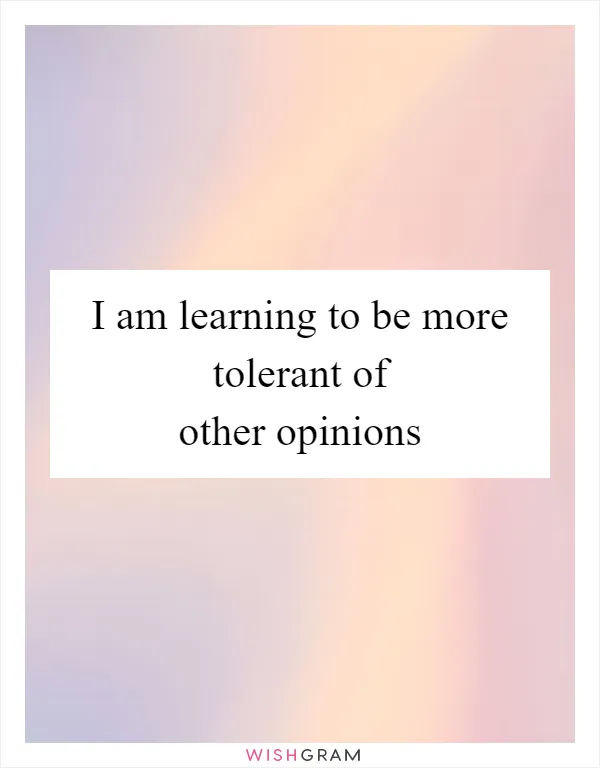I am learning to be more tolerant of other opinions
Relationship Affirmations: Learning to Be More Tolerant of Other Opinions
In the journey of building and nurturing relationships, one of the most crucial aspects is learning to be more tolerant of other opinions. It is an essential skill that allows us to foster understanding, empathy, and respect within our relationships. By embracing diverse perspectives and opinions, we create an environment that encourages open dialogue and growth. In this context, relationship affirmations play a significant role in reinforcing our commitment to becoming more tolerant individuals.
Understanding that everyone has their own unique experiences, beliefs, and values is fundamental to developing tolerance. We must acknowledge that our opinions are not the only valid ones and that others have the right to express their thoughts freely. By recognizing this, we can create a safe space where differing viewpoints are welcomed and appreciated.
Learning to be more tolerant of other opinions requires active listening and genuine curiosity. Instead of immediately dismissing or invalidating someone's perspective, we can choose to engage in meaningful conversations. By asking questions and seeking to understand their reasoning, we open ourselves up to new insights and broaden our own understanding of the world.
It is important to remember that tolerance does not mean we have to agree with every opinion we encounter. Rather, it means respecting the right of others to hold those opinions and recognizing that diversity of thought enriches our relationships. We can disagree without being disrespectful or dismissive, fostering an atmosphere of mutual respect and acceptance.
Relationship affirmations serve as powerful reminders of our commitment to becoming more tolerant individuals. By incorporating these affirmations into our daily lives, we reinforce our dedication to embracing diverse opinions. For example, we might repeat affirmations such as, "I am open to different perspectives and value the diversity of opinions in my relationships," or "I choose to listen and understand before forming judgments about others' opinions."
Practicing tolerance also involves self-reflection and self-awareness. It requires us to examine our own biases and preconceived notions, challenging ourselves to grow beyond them. By recognizing and addressing our own limitations, we can create an environment that encourages others to express their opinions freely, without fear of judgment or rejection.
Furthermore, learning to be more tolerant of other opinions strengthens our relationships by fostering trust and deepening connections. When we demonstrate respect for others' viewpoints, we create an atmosphere where individuals feel valued and heard. This, in turn, encourages them to reciprocate, leading to healthier and more fulfilling relationships.
